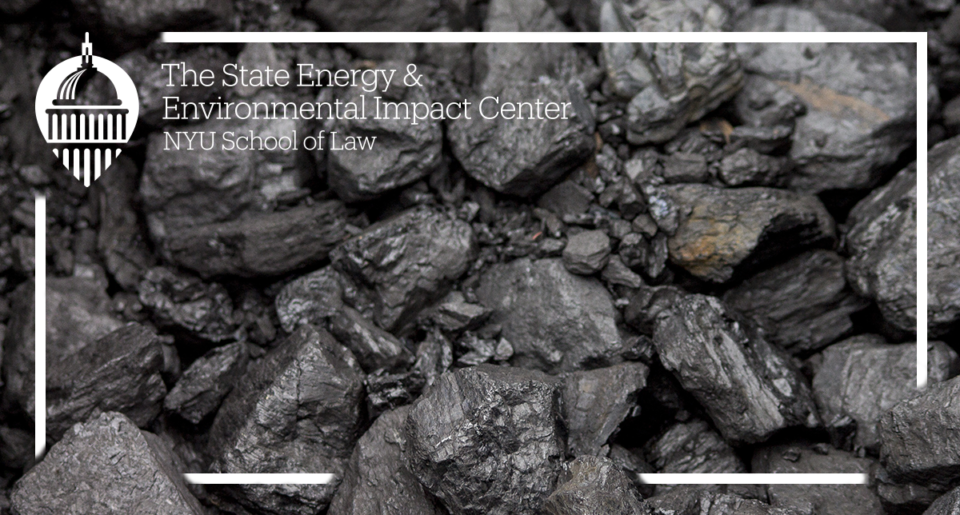What a Recent Court Decision Means for Future Environmental Deregulation
David J. Hayes (Past Executive Director) / April 26, 2019

As chronicled in previous editions of Legally Speaking, the Trump administration has an abysmal track record in defending its deregulatory actions in the courts. The administration’s poor performance has been due, in large part, to its repeated attempts to unlawfully delay or otherwise avoid enforcing legal requirements that are on the books. Courts have not been patient with such antics.
After losing this first round of legal battles, the administration shifted its legal strategy and began to use the formal, notice-and-comment process laid out in the Administrative Procedure Act to roll back or replace rules that it does not like. It recognized that if executed successfully, these new rules could be more legally defensible and, once in place, have the force of law.
The administration’s new approach is not off to a good start. On March 29, in State of California v. Department of the Interior, a federal court nullified one of the Trump administration’s first attempted uses of the formal notice-and-comment rulemaking process to roll back an Obama-era reform.
Here’s the quick background:
- In 2015, the Interior Department’s Office of Natural Resources Revenue promulgated the so-called “valuation” reform rule that outlawed practices used by the coal, oil and gas industry to underpay royalties owed to state and federal governments from operations on public lands. The Interior Department estimated that the reform would increase royalty collections between $71.9 million and $84.9 million and reduce administrative costs by $3.61 million.
- After unsuccessfully trying to kill the rule in Congress, and then unsuccessfully seeking to delay implementation of the final rule, the Interior Department finally initiated a formal notice-and-comment rulemaking process to repeal the reform rule in 2017.
- In attempting to justify repeal of the valuation reform rule, the administration credited industry complaints that the rule was “challenging” to implement. It also claimed that changing industry practices would “unnecessarily burden” oil and gas activities on public lands, allegedly in violation of President Trump’s Executive Order 12783.
- California and New Mexico Attorneys General Xavier Becerra and Hector Balderas filed suit upon issuance of the final rule.
In the March 29 decision vacating the final agency rule, Judge Armstrong, a George H.W. Bush appointee, determined that the repeal rule was “arbitrary and capricious” under the Administrative Procedure Act. The judge pointedly explained that by crediting the very same industry complaints about the reform rule that it had previously evaluated and dismissed, the Interior Department was “directly contradict[ing] its previous findings in its promulgation of the Valuation Rule.”
The court also criticized Interior’s “conclusory assertions” regarding the reform rule’s alleged regulatory burdens on industry as “inadequate,” particularly given the Department’s failure “to provide any data or analysis to support them.” The court cited the Supreme Court’s admonishment that “when an agency seeks to disregard facts underlying the original rule, it must provide ‘a more detailed justification than what would suffice for a new policy created on a blank slate.’” It concluded that the Department utterly failed to do so here. And in the mode of piling on, the court dinged Interior for failing to adequately inform the public of its rationale for repealing the valuation rule — an essential prerequisite for soliciting meaningful and informed comment.
The court’s strong rebuke of the administration’s failed attempt to rewrite or, in this case, to repeal, a fiscally and environmentally protective rule will have “legs.” New rules with similar defects will soon be added to additional court dockets.
More specifically, as highlighted in the State Impact Center’s recent Special Report, the administration has initiated formal notice-and-comment rulemakings to roll back legally-required greenhouse gas emissions reductions in the coal, automobile, and oil and gas industries. In none of these cases is the administration operating on a “blank slate.” To the contrary, Obama-era greenhouse gas reduction rules are backed by extensive administrative records that the administration’s proposed rollback replacement rules have largely — and in some cases, completely — ignored. In addition, each of the major replacement rules would actually increase, rather than decrease, overall emissions, based on the same type of thin industry complaints that had been raised and rejected in prior administrative proceedings.
In short, the administration has set itself up to begin a new losing streak in the courts.
